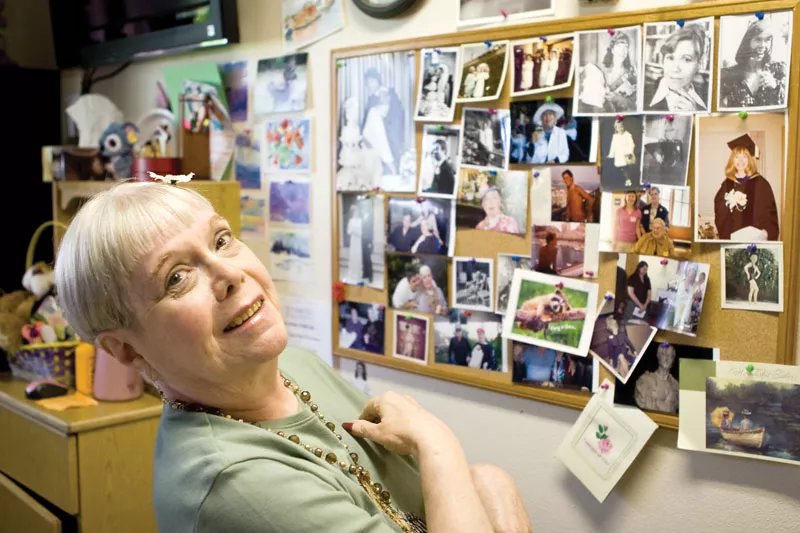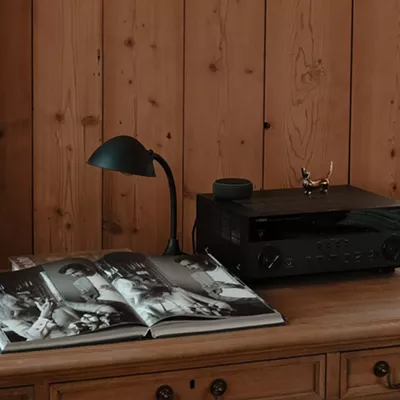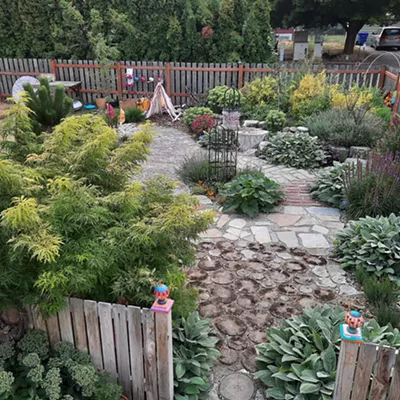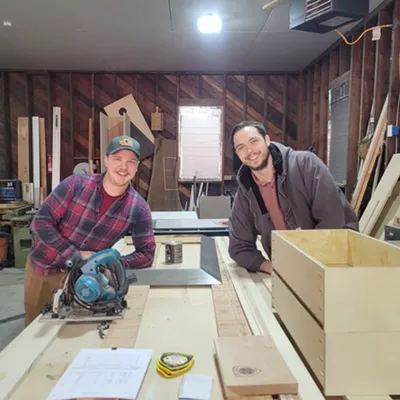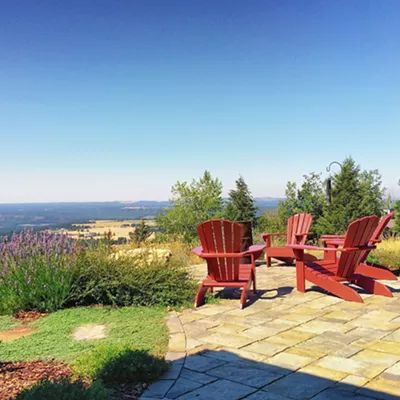Before Norma Melone moved to Spokane in 2009, she wasn’t too happy with her living situation. “It wasn’t awful,” she says of the Sunnyvale, Calif. nursing home. “But it wasn’t good.”
Now, for Melone, things are going very well. She lives at Royal Park Care Center, her room bright and cheerful, with a wall devoted to mementos from her early acting career. But it’s more than just the decor that’s made a difference.
“The closeness and availability of my family,” says Melone. “It’s just much more comfortable here.”
Of course, anyone who has lived in — or visited — more than one care facility for the elderly can tell you there are many differences to be found between the properties. And that, according to Linda Petrie, is why getting involved is so crucial.
“You’ve got to go visit a facility when you’re trying to decide,” says Petrie, the regional ombudsman of a five-county area around Spokane. Ombudsmen across the state and country serve as advocates for residents of nursing homes, board and care homes and assisted living facilities. (The five-county area — Spokane, Pend Oreille, Ferry, Stevens and Whitman — includes 28 nursing homes, 67 boarding homes/assisted living facilities and 200 adult family homes.)
“One of the most beneficial things a family can do is to visit a facility without an appointment,” says Petrie. “You can get a good first impression before you go on a grand tour. And go back to visit more than once. Go several times.”
A visit to a facility is about much more than room size or the types of meals that are served. A great resource for gaining information about a facility is the Washington State Department of Social and Health Services “survey book.” It’s an actual book, kept accessible for public review by all facilities, that details any complaints made about a particular facility, whether or not the state issued a citation and what corrective action was taken by the facility.
“You can ask for the latest survey,” says Petrie. “Just ask to see their book. It’s very simple.”
And the survey book is, really, just a tidbit in the feast of information that’s available to people considering a care facility. Even a cursory look at the websites, the publications and the pamphlets reinforces that “first person” is the best way to go.
Matt Fleming, administrator at Royal Park Care Center, strongly advocates that prospective residents and their families do a thorough background check of his, or any other, facility.
“People should go to the nursing home,” Fleming says. “See how it feels, how it looks, how it smells. See if the staff’s happy. Go in and look at the survey book.” Fleming, like Petrie, also recommends visiting a facility unannounced.
Of course, when there are problems at a facility, they can be a matter of life and death. Last summer, a facility in Spokane was cited for failure to provide some aspects of necessary care to an elderly resident who died just days after being transferred from the facility to a hospital.
Fortunately, that is a rare and extreme example of a problem that has happened at a facility. Again, the survey books include any and all complaints.
Says Fleming: “When you have humans taking care of humans, errors can happen. You must have systems in place as a nursing home. It’s how you handle that [error] when it happens that defines you. When I talk to new staff at orientation, I always say, ‘I sure hope you love the elderly because if you don’t, I don’t want you working here.’”
Petrie’s office, which is staffed by a small squad of volunteers, fields calls all the time — whether they’re from people just beginning to look into securing care or from someone calling to complain about a facility.
“People can call us anytime,” she says, adding that anyone wanting to volunteer for the ombudsman’s office is always welcome to pick up the phone, too. Choosing a facility is crucially important for the entire family, but, most particularly, for the resident.
“Listen to the elders,” says Petrie. “Let them make decisions as much as possible. Maybe they want to stay in their own homes, so the family should try to figure out how they can do that, if they can.”
In Norma Melone’s case, she says a family member in Spokane took the lead in helping to relocate her to the Inland Northwest. It was that extra, personal attention that, Melone says, ended up with her feeling like she’s found not just another “facility” but, rather, a home.
FINDING HELP
In Washington, call 1-866-ENDHARM any time day or night, to report suspected abuse or neglect in any type of care facility.
Regional Ombudsman Linda Petrie’s office numbers are (509) 456-7133 or (800) 660-7133. In Coeur d’Alene, Ombudsman Jan
Young can be reached at (208) 667-3179. Federal resources are available at www.medicare.gove/nhcompare as well.

